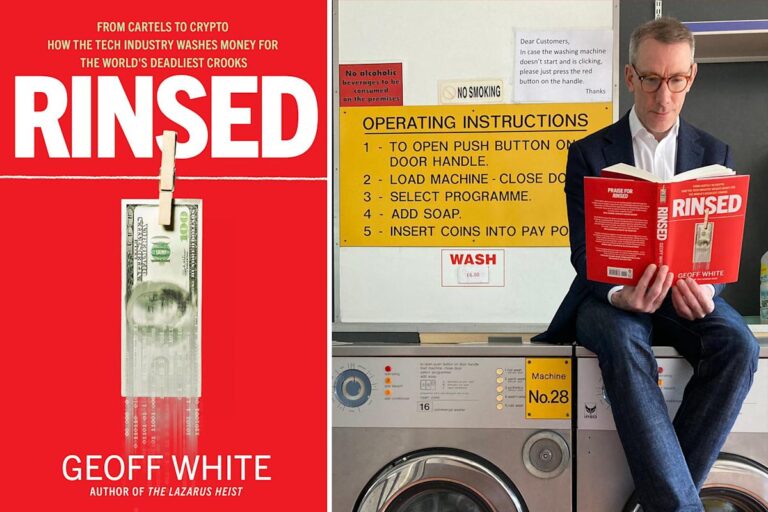In “Rinsed: From Cartels to Crypto: How the Tech Industry Washes Money for the World’s Deadliest Crooks” (yes, it’s a real page-turner, not a thriller about IKEA’s pricing strategies), Geoff White poses a tantalizing dilemma: What do you do when you discover you’ve suddenly come into possession of a hefty sum of cash, but the sources are any combination of illegal, embarrassing, or best left not discussed during family dinners? White invites readers to grapple with this moral quandary while munching on popcorn. “How do you enjoy your newfound wealth while keeping the origins a secret?” It’s like a game of Monopoly, minus the ‘get out of jail free cards’—because you’ll definitely need something else to avoid actual jail.
Enter stage left: money laundering. In “Rinsed,” our dear Geoff unravels the tech-savvy mind of the modern-day crook. Apparently, technology and launderers share a symbiotic relationship, like those romantic couples you see on Instagram, complete with the excessive filters. “Technologists have this frustratingly adorable habit of creating innovations that have the precise qualities money launderers drool over,” writes White. Just imagine, an entire tech industry unintentionally working for the criminal underworld—what’s next, an app for cash-stuffing envelopes?
According to White, money laundering operates in three glorious stages: First, there’s the ‘placement’ phase where ill-gotten gains make their grand entrance into the financial arena. Then comes the ‘layering’ dance where illegitimate funds tango with the legitimate cash until you can’t tell them apart. And finally, voila! The funds are now neatly cleaned and available, like laundry pulled from the dryer, but with an added scent of crime.
“To launder money is to change its history,” White so eloquently explains, presumably sipping a latte infused with freshly laundered bills. And surprise, surprise—technology isn’t just a friend; it’s the enthusiastic party crasher for money launderers. With each digital advancement, criminals find new, innovative ways to play ‘hide and seek’ with ill-gotten gains.
From the infamous ‘Yahoo Boys’ of Nigeria, who make their name through the world’s least creative scheme—using email accounts to con people— to Hydra, the dark web version of an online marketplace, the rise of cybercrime makes your grandma’s cookie sharing seem terribly old-fashioned. And just look at the 2022 crypto-heist of $625 million from Singapore’s Sky Mavis. White describes it perfectly: “What made that particularly unsettling was that the technology used was akin to a driverless car—an autonomous mixer with no controlling owner.” In other words, it’s a wash-and-go for criminals—no car wash necessary!
“The perfect technocratic crime,” he labels it, as if saying, “Congratulations! You’ve successfully baked the world’s most sinister cake!”.
White also points out that with every shiny new digital development, fraudsters are loving life like kids in a candy store—especially since they don’t have to pony up any cash up front. One imaginative police officer summarizes, “Distributing cocaine? You’ve gotta buy it first. But in fraud? What’s your overhead?” Voilà! The commodity you’re selling is pure bull—cheap, plentiful, and infinitely available!
In that vein, “Rinsed” predicts trouble ahead for the rest of us. “A rising tide lifts all boats—except in money laundering, where it paints a rather grim picture for the future. The more these launderers refine their craft, the more crime in all its glorious forms will flourish,” adds White.

